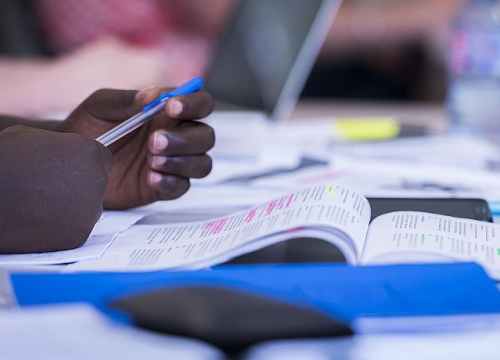

Olivier Chamard / Geneva Academy
Candidates must have:
- A full degree in law (received by June at the latest) of 4 years minium and enabling the applicant to sit the bar exam in the relevant country or a Master in a relevant field for the programme or an equivalent Master degree in a field relevant to transitional justice (such as international relations or political science) if the applicant has a significant amount of training in public international law and courses related to our programme (e.g. international human rights law, international criminal law)
- A solid academic record
- A demonstrable interest in transitional justice, human rights and the rule of law (professional experience, internships, summer schools, conferences attended, publications, etc.)
- A sound command of English (level C1). You must be able to show, via a recognized test, that your English is of a high enough standard to successfully engage with and complete your course at the Geneva Academy. This requirement does not apply if (1) your mother tongue is English; (2) you have taken an English-taught bachelor’s or master’s degree; (3) you have at least two years’ professional or academic experience in an English-speaking environment
A Comprehensive Assessment
Each application is considered in its entirety, including transcripts, extracurricular and voluntary activities, work experience, personal background, letters of recommendation, cover letter and language skills.
In considering each individual, the Admissions Committee seeks not only to identify characteristics that are important to academic success in the programme, but also other qualities that promote diversity and excellence in the student body.
It is the reponsibilty of each applicant to make sure that their application is complete. If any of the required documents are missing, the application will not be considered.
Note for Native French Speakers
Most courses are taught in English. Some exams can be taken in French and questions in class may be asked in either language. The Master of Advanced Studies in Transitional Justice, Human Rights and the Rule of Law paper can be written in French.




